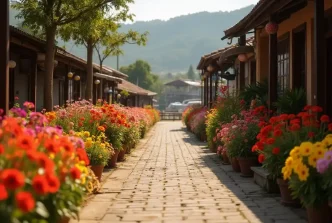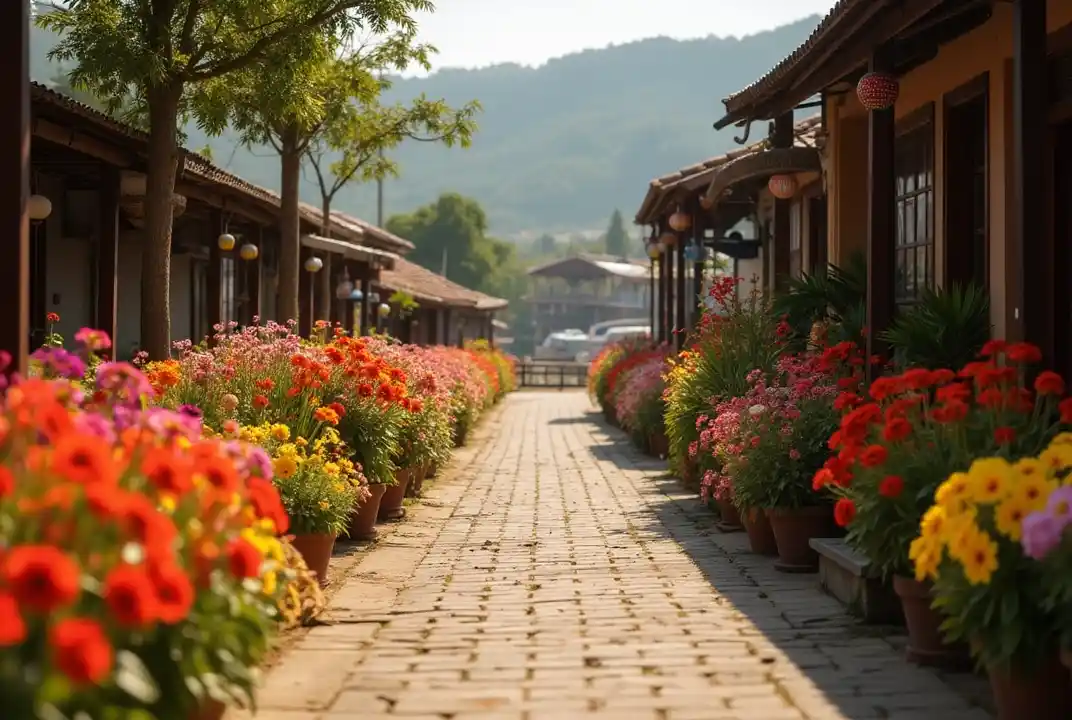By Jamie Fisher, South East Asia Correspondent
Da Lat, nestled in Vietnam’s Central Highlands, continues to enchant visitors with its vibrant floral displays and fresh, organic cuisine, drawing in travellers from afar. A recent family trip highlights how this “city of eternal spring” blends natural beauty with culinary traditions, offering a refreshing escape that showcases the region’s agricultural heritage.
The allure of Da Lat lies in its cool climate and fertile soils, which have long made it a hub for organic farming and flower cultivation. For one Vietnamese family returning from overseas, a New Year visit turned into an immersive experience of local flavours and landscapes, underscoring the city’s growing appeal on the national and international tourism map.
Tạ Ngọc Huyền, who has lived in the UK for years, organised a road trip for her family, including her husband, his parents, and grandmother. Their journey took them through the winding roads of the Central Highlands to Da Lat, before extending to Phú Quốc Island. Renting a spacious seven-seater car, they aimed to savour Vietnam’s diverse scenery, from misty mountains to coastal shores.
Upon arriving in Da Lat, the group was immediately struck by the city’s explosion of colours. “Thousands of flowers bloom at every corner,” Huyền recounted, as her British relatives marvelled at the sight. The city, often called a floral paradise, features vast organic vegetable farms and bustling markets, where fresh produce is a staple.
A highlight was their meal at a stylish restaurant near the Da Lat cable car station, where they indulged in the city’s signature organic vegetable hotpot. This dish, a symphony of fresh ingredients, included an array of greens like malabar spinach, cauliflower, kale, and asparagus, alongside roots and fruits such as carrots, eggplants, and tomatoes. The hotpot was served with options like egg noodles or vermicelli, and the group experimented with various dipping sauces, including the local favourite kho quẹt – a tangy, aromatic blend that elevates the mild flavours.
Huyền’s husband’s grandmother, savouring the light, sweet broth, described it as a rejuvenating treat. “It releases any tiredness and leaves me feeling relaxed,” she said, expressing her desire to return. The family added their own twist, topping the hotpot with seafood and spicy sauces, blending British palates with Vietnamese tastes.
The restaurant’s complimentary artichoke tea, known for its health benefits and digestive properties, added to the experience. After the meal, the group visited the nearby Vạn Thành organic farm, just four kilometres west of the city centre. There, they wandered through fields of blooming flowers – roses and Marguerite daisies among them – and sampled fresh strawberries straight from the vines.
“We felt as if we were in a virgin forest of flowers,” said Huyền’s mother-in-law, capturing the wonder of the moment. Tour guide Lê Văn Nam explained that the farm not only offers scenic tours but also educates visitors on sustainable gardening techniques. “We teach people how to grow their own vegetables and fruits at home,” he noted, as the family learned about harvesting methods and the farm’s role in supporting local agriculture.
Da Lat’s organic farming scene is more than a tourist attraction; it reflects Vietnam’s push towards sustainable practices, with farms like Vạn Thành welcoming hundreds of visitors annually. This growing interest could help position the city as a key destination for eco-tourism, appealing to those seeking authentic cultural experiences.
Destinations like Da Lat offer a perfect blend of relaxation and discovery. For Huyền and her family, the trip was a heartfelt reconnection with roots, leaving them with memories of crisp air, vibrant blooms, and wholesome meals.













